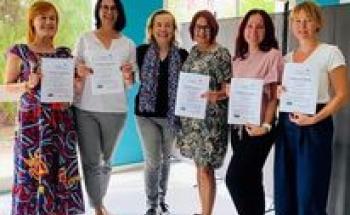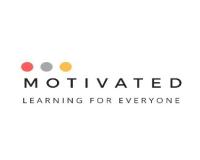
“Mind Games at School: Enhancing Students’ Cognitive and Problem – Solving Abilities"
The purpose of this KA1 Erasmus+ Course is: To build 21st century success skills such as critical thinking, problem solving, communication, collaboration and creativity/innovation; To acquire teaching methods how to improve self – esteem of the students through encouraging their creative thinking and fostering their imagination; To develop Lateral Thinking Skills.
Description
Programme of training activities day-by-day:
MONDAY (Day 1)
Module 1: Welcome and registration; Ice-breaking and Warm Ups. Team-building session
Introduction: The Benefits of using Mind Games at School: Do mind games help brain and cognitive thinking? How mind games improve logical thinking, concentration and critical thinking?
TUESDAY (Day 2)
Module 2: Characteristics of Effective 21st century Teaching/Teachers;
- Effective Classroom Interactions: Supporting Students’ Development;
- Successful Strategies for Increasing Students’ Motivation;
- Effective and Innovative Teaching Methods: Project-Based and Student-centered Learning Strategies in the Classroom through using Mind Games
- Group discussion: The integration of education with mind games to the school curriculum
WEDNESDAY (Day 3)
Module 3: Outdoor activity with a training task: “Treasure Hunt”: In the shoes of our learners
THURSDAY (Day 4)
Module 4: Using Mind Games at School Mind to Activate Students’ Thinking Skills: Types and Examples of Mind Games:
- Memory Match;
- WHAT’S MISSING? / Drawing From Memory (Visual/Auditory/Tactile);
- Solving Puzzles;
- Bonding Over Board Games;
- Rewiring Brains with Brain Games;
- Stretch Thinking with Word Games.
FRIDAY (Day 5)
Module 5:
- Mind Games: Embracing Technology;
- How to connect games to the academic curriculum?
- Things Teachers Can Do to Promote Creativity and Lateral Thinking in Classroom
SATURDAY (Day 6)
Module 6: Group work – overview of the outcomes
Sightseeing/ Cultural Activities according the intercultural competences, stated in Europass Mobility
SUNDAY (Day 7)
Module 7: Course conclusion: Feedback, course evaluation and dissemination focus; Delivery of Certificates
IMPORTANT: PARTICIPANTS COULD ATTEND 5, 6, 7 OR MORE DAYS IN ACCORDANCE TO THEIR APPLICATION. COURSE FEE INCLUDES TRAINING, COURSE DOCUMENTS (TEMPLATES WILL BE SENT TO PARTICIPATING TEACHERS), COFFEE BREAKS, STATIONARY, SIGHTSEEING, SCHOOL VISIT AT MOST LOCATIONS WHERE THE COURSE WILL BE HELD.
Learning objectives
Gain general concepts about the mind games; Learn about the types of the mind games, strategies, and their application types; Gain knowledge about mind games, their rules, and solving strategies; Develop ability to be referees of mind games; Provide knowledge and skills with a positive attitude towards innovations, feel the necessity for self-education, and adopt a student centered teaching approach; Develop teaching professional skills, trying to be "an effective model of competence"; Learning to learn competence; Integrate 21st century skills and content in instruction; Using a variety of research-verified approaches to improve teaching and learning; Gain techniques for working with heterogeneous classrooms, support inclusion of various minorities into mainstream education based on democratic values, promote active participation in society; Apply Project – Based Learning as student-centered teaching method, encourage learning through spontaneous activities and solving meaningful real-world tasks; Balancing direct instruction strategically with project-oriented teaching methods; Develop relevant, high-level skills such as creativity, critical thinking, metacognition and other key competences through innovative teaching methods, enhance good quality of mainstream education; Enable teachers to review and develop teaching methods so as to improve both the content of their classes/ lessons and their method of delivery as teachers; Learn to motivate, guide and effectively assess to reduce low achievement in basic competences, promote peer exchange and active participation within the education; Revise and develop personal and professional competences, build confidence in promoting innovative and active pedagogies that are responsive to social and cultural diversity; Enhance teachers’ flexibility in designing ways of running a class component and in applying new ways of teaching or research.
Methodology & assessment
Certification details
At the end of the course, each participant will be awarded a Certificate of Attendance along with Europass Mobility.
Our certificates are in line with the Erasmus Quality Standards and so include the course's title, short description of its learning outcomes (if requested), dates, venue, the name of the course provider and the course director, number of training hours.
We support participants in every step of certification and validation of learning outcomes with specific focus on European instruments and Erasmus+ requirements such as Learning Agreement, Quality Commitment and Europass mobility.
Pricing, packages and other information
-
Price:560Euro
Additional information
-
Language:English
-
Target audience ISCED:Primary education (ISCED 1)Lower secondary education (ISCED 2)Upper secondary education (ISCED 3)
-
Target audience type:TeacherHead Teacher / PrincipalPedagogical Adviser
-
Learning time:25 hours or more
Upcoming sessions
Past sessions
More courses by this organiser

“Peer Abuse in school – Effective prevention through Sports Activities”

“Inclusive Education and Diversity in the Classroom: Effective Strategies and Teaching Tolerance”


